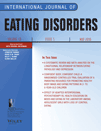Calugi S, Ruocco A, El Ghoch M, Andrea C, Geccherle E, Sartori F, Dalle Grave R (2016). Residential cognitive-behavioral weight-loss intervention for obesity with and without binge-eating disorder: A prospective case–control study with five-year follow-up. International Journal of Eating Disorders. DOI: 10.1002/eat.22549

ABSTRACT
Objective The aim of this prospective case–control study was to compare the long-term effects of a residential cognitive-behavioral treatment (CBT) for weight loss in severely obese patients with and without binge-eating disorder (BED).
Methods We assessed weight-loss outcomes and psychological impairment in 54 severely obese female patients with BED and 54 patients matched by age, gender, and body mass index (BMI) without BED admitted to a residential CBT program. Body weight was measured at baseline and at 6-month follow-up and was reported by patients in a telephone interview at 5-year follow-up. Depression, eating disorder psychopathology, general psychopathology, and quality of life were assessed using validated instruments at baseline and at 6-month follow-up.
Results Obese patients with and without BED had similar weight loss at 6-month and 5-year follow-ups. Although both groups showed improved psychosocial variables, at 6 months the BED group maintained higher psychological impairment. Nevertheless, at 5-year follow-up more than half of the BED participants were no longer classifiable as having BED.
Discussion The presence of BED does not affect weight-loss outcome in obese patients treated with the residential CBT for weight loss program considered. © 2016 Wiley Periodicals, Inc.(Int J Eat Disord 2016)





